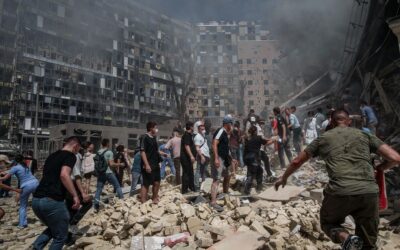 Among the challenges that the Church is currently facing there is that of the decrease in priestly vocations, which makes it difficult to carry on those tasks that were traditionally performed by pastors. On the other hand, the Second Vatican Council conferred great dignity on the laity, opening doors to concrete action by the faithful in parish environments. They have worked alongside and at times taken a central role in activities that were previously carried out by priests. Here are some experiences that have emerged in a few Austrian Catholic parishes where there are members belonging to the Focolare’s Parish Movement. Brigitte belongs to a small pastoral team in charge of a parish. She deals with liturgy and ministry to the infirm. This team is entrusted with the entire running of the parish, since it is not possible for the pastor to be present as he serves five parishes. It is not an easy role because pastoral teams are new also in Austria where the Primate of Vienna, Cardinal Schonborn a few years ago launched “pastoral units” to give more responsibility to lay people. In this way the priests are freer to carry out those services that are exclusive to them as ordained ministers. Rif, a hamlet in the city of Hallein, Salzburg. It became necessary to build a new church here, since the Christian community was growing. One priest, one sister and two associate pastors care for three parishes in a “pastoral unit” where there is much harmony. One of these parishes has just begun, whereas the others hail from the age of the Salzburg high bourgeoisie.
Among the challenges that the Church is currently facing there is that of the decrease in priestly vocations, which makes it difficult to carry on those tasks that were traditionally performed by pastors. On the other hand, the Second Vatican Council conferred great dignity on the laity, opening doors to concrete action by the faithful in parish environments. They have worked alongside and at times taken a central role in activities that were previously carried out by priests. Here are some experiences that have emerged in a few Austrian Catholic parishes where there are members belonging to the Focolare’s Parish Movement. Brigitte belongs to a small pastoral team in charge of a parish. She deals with liturgy and ministry to the infirm. This team is entrusted with the entire running of the parish, since it is not possible for the pastor to be present as he serves five parishes. It is not an easy role because pastoral teams are new also in Austria where the Primate of Vienna, Cardinal Schonborn a few years ago launched “pastoral units” to give more responsibility to lay people. In this way the priests are freer to carry out those services that are exclusive to them as ordained ministers. Rif, a hamlet in the city of Hallein, Salzburg. It became necessary to build a new church here, since the Christian community was growing. One priest, one sister and two associate pastors care for three parishes in a “pastoral unit” where there is much harmony. One of these parishes has just begun, whereas the others hail from the age of the Salzburg high bourgeoisie.  In Vienna Gabi is a pastoral assistant and does everything that is needed to keep the parish running. He belongs to the pastoral council and has brought a new and contagious enthusiasm by organizing sharing groups in which people may share their experiences on the Word of God. Maria Rudorg left a stable and interesting job in a shop, to be at the disposal of a community of priests. Having been with them for many years, helping them in bringing ahead the parish and now, as the priests are changing and new ones arrive from other countries, she helps them to become integrated into the European culture. People who are involved, anchors of a Christian community who make the Church come alive. Here you do not have the impression of a diminishing Church as statistics would show, but of a Church that is growing and maturing and has much more to offer to society and to the world.
In Vienna Gabi is a pastoral assistant and does everything that is needed to keep the parish running. He belongs to the pastoral council and has brought a new and contagious enthusiasm by organizing sharing groups in which people may share their experiences on the Word of God. Maria Rudorg left a stable and interesting job in a shop, to be at the disposal of a community of priests. Having been with them for many years, helping them in bringing ahead the parish and now, as the priests are changing and new ones arrive from other countries, she helps them to become integrated into the European culture. People who are involved, anchors of a Christian community who make the Church come alive. Here you do not have the impression of a diminishing Church as statistics would show, but of a Church that is growing and maturing and has much more to offer to society and to the world.
Love gives meaning to everything
Love gives meaning to everything




0 Comments